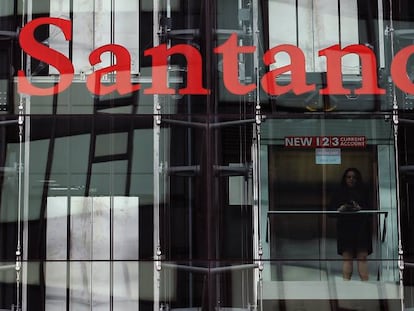Trade between Spain and the United States in the post-Brexit era
Obama¡¯s visit won¡¯t have helped improve business and commercial ties
In many ways, for Spanish companies the US market is still as remote as the Chinese empire was for Italians in the time of Marco Polo. We know it exists, we know something about it (perhaps even a little too much) from novels, movies, television series and from what visitors and tourists have to say about it.
Obama¡¯s visit was not about trade, but a diplomatic and institutional obligation towards one of Europe¡¯s most important economies?
But for a Spanish company, setting up in the United States is still extremely difficult. Not so for the big players such as Spain¡¯s two biggest banks or its utilities, which are well-placed to study the opportunities there and to invest accordingly. The problem for smaller Spanish businesses is that there are so few opportunities across the Atlantic that they can take advantage of.
And the reasons for this, reasons that apply to other European companies as well, is the United States¡¯ very different approach to doing business, although these cultural differences are probably less notable and problematic between large corporations than they are between smaller businesses.
At the end of the day, the legal and financial languages spoken between companies that provide services for large segments of the market are not that different in Florida, Los Angeles, Madrid or Frankfurt. The real entry barriers for smaller players are the specifics of industries, competition, health and safety regulations, and how people do business.
Sign up for our newsletter
EL PA?S English Edition has launched a weekly newsletter. Sign up today to receive a selection of our best stories in your inbox every Saturday morning. For full details about how to subscribe, click here
The ongoing negotiations between the EU and the United States over the Transatlantic Trade and Investment Partnership (TTIP) show how deep these differences are: Paris and Berlin are very unhappy with many aspects of the deal the Americans have put on the table.
President Barack Obama¡¯s visit to Spain will not resolve these deep-seated problems, nor will it bring about improvements in trade or business. This is hardly surprising, given that his visit was not about trade, but a diplomatic and institutional obligation towards one of Europe¡¯s most important economies: meanwhile, creating business ties between our two countries is a long-term, ongoing project.
What's more, the presence of Spain¡¯s business middle classes in the United States depends in large part on the TTIP being signed.The post-Brexit eurozone would benefit from signing the TTIP as soon as possible to reaffirm the economic recovery of the area, as well as a way to counter fears about the impact of the UK¡¯s decision to leave the European Union.
In the meantime, Spanish companies that want to set up in the United States will continue to have to accept the reality of initially high investment, a focus on Spanish-speaking markets, and above all, lots of marketing.
English version by Nick Lyne.
Tu suscripci¨®n se est¨¢ usando en otro dispositivo
?Quieres a?adir otro usuario a tu suscripci¨®n?
Si contin¨²as leyendo en este dispositivo, no se podr¨¢ leer en el otro.
FlechaTu suscripci¨®n se est¨¢ usando en otro dispositivo y solo puedes acceder a EL PA?S desde un dispositivo a la vez.
Si quieres compartir tu cuenta, cambia tu suscripci¨®n a la modalidad Premium, as¨ª podr¨¢s a?adir otro usuario. Cada uno acceder¨¢ con su propia cuenta de email, lo que os permitir¨¢ personalizar vuestra experiencia en EL PA?S.
?Tienes una suscripci¨®n de empresa? Accede aqu¨ª para contratar m¨¢s cuentas.
En el caso de no saber qui¨¦n est¨¢ usando tu cuenta, te recomendamos cambiar tu contrase?a aqu¨ª.
Si decides continuar compartiendo tu cuenta, este mensaje se mostrar¨¢ en tu dispositivo y en el de la otra persona que est¨¢ usando tu cuenta de forma indefinida, afectando a tu experiencia de lectura. Puedes consultar aqu¨ª los t¨¦rminos y condiciones de la suscripci¨®n digital.










































